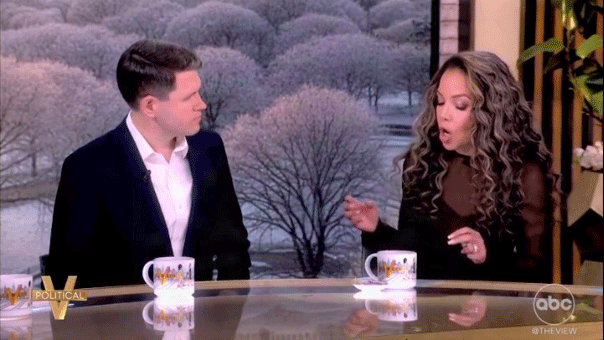Biden focuses more on surging violence as polls tighten
Reaction and analysis from Fox News contributor Robert Wolf.
There was one soft-spoken moment in Joe Biden’s attack on President Trump over the issue of violence that crystallized what this election is about.
Put aside for a moment the fierce rhetoric by both candidates, playing out against a backdrop of riot-torn cities and three fatal shootings in the space of a week.
Looking into the camera in an empty room in Pittsburgh, Biden said: “You know me. You know my heart. You know my story, my family’s story. Ask yourself: Do I look like a radical socialist with a soft spot for rioters? Really?”
No matter what the issue, Biden is using what is at once his greatest strength and weakness--familiarity--to try to puncture the dark picture that Trump and his allies are painting of him. He wants voters to believe it’s malarkey.
The image of Uncle Joe, riding Amtrak back to Wilmington, the backslapping but gaffe-prone partner of Barack Obama, is pretty well etched in the public mind after his 47 years in national politics. That also means he’s got plenty of baggage and battle scars, and at 77 is a less than inspirational figure to lead the country forward.
But I’d argue that familiarity (and strong support in the black community) is why Biden beat 23 other Democrats in the primaries. And if the nominee was now Elizabeth Warren or Pete Buttigieg or, yes, Kamala Harris, it would be far easier for the Trump team to paint that person as dangerous, incompetent or a wild-eyed socialist (even easier if it was Bernie).
With the attacks on Biden, not much has stuck--until now.
The former vice president is clearly on the defensive this week, denouncing rioters and looters more forcefully than before while declining to criticize any of the Democratic mayors who have let their cities spin out of control. But he tried to broaden the definition of personal safety to include the coronavirus.
As for Trump, he is again going full blast on controversial comments and tweets that he had been disciplined enough to put on hold during last week’s convention.
In an interview with Fox’s Laura Ingraham, the president said this about Jacob Blake, who was shot in the back seven times in Kenosha:
“He might’ve been going for a weapon. And you know there’s a whole big thing there. But they choke, just like in a golf tournament, they miss a 3-foot putt…” Laura threw him a lifeline: “You’re not comparing it to golf,” she said. “Because of course that’s what the media would say…people panic.”
SUBSCRIBE TO HOWIE'S MEDIA BUZZMETER PODCAST, A RIFF OF THE DAY'S HOTTEST STORIES
The president didn’t disavow the analogy: “I’m saying people choke. And people are bad people. You have both. If you have some bad people and they choke. You could be a police officer for 15 years and all of a sudden you’re confronted. You’ve got a quarter of a second to make a decision. If you don’t make the decision and you’re wrong, you’re dead. People choke under those circumstances and they make a bad decision. I’ve seen bad decisions of people that, it looked bad, but probably it was a choke.”
Now that was one of the worst analogies ever. But his larger point isn’t crazy: We ask police officers to put their lives on the line each day, sometimes they are confronted with split-second decisions and sometimes they make mistakes. The Blake shooting looks awful, but there’s a lot we still don’t know.
The president seemed to apply a different standard in what he called the “disgraceful” fatal shooting of one of his supporters in Portland last weekend. That took place after Trump’s truck-driving supporters rolled into town for a rally and were firing paintballs and pepper spray at liberal protesters.
The president told reporters Monday that “paint is a defensive mechanism. Paint is not bullets.”
And he suggested that another Trump supporter, 17-year-old Kyle Rittenhouse, who has been charged with homicide in the two Portland shootings, may have acted in self-defense. “I guess he was in very big trouble. He probably would have been killed,” the president said. It’s possible this teenager was defending himself--again, we don’t know--but he generally gives his supporters the benefit of the doubt.
All of which leaves us with the extraordinary spectacle of two candidates saying the other is responsible for a surge in deadly violence. That is the turf Trump wants to fight on; Biden prefers the broader ground of a toxic approach to crime and Covid.
After nearly six years, most of the public has a firm view of Donald Trump, both passionately positive and nefariously negative. And there is an equally fixed view of Joe Biden, pro and con, but not as a crazed radical. That’s why there has been relatively little movement for months in a race that will turn on whether either reputation can be further decimated.










































